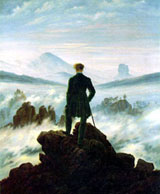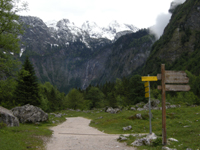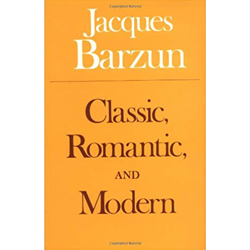This article is meant as a general guide and brief explanation of the many eras experienced in the history of the world and more specifically Western Civilization. The article will be continuously updated and expanded. Any contribution or debate is welcome.
Events can trigger an end of an era and the start of a new one. It is interesting to see what events triggered these enormous cultural changes. Often they were changes that had already happened but some kind of event was needed to demonstrate the change and force our culture to accept it.
Rough Outline
Modern - 1914-Present
Romantic - 1750-1914
Classic - 1517-1750
Renaissance - 1300-1600
Medieval - 1000-1517
1350’s - Plague slows and stops
Dark Ages - 476-1000
Civilizational Decline in Western Europe
Classical - 500 BC-476 AD
Greek Golden Age - 500-300 BC
Iron Age - 1200-400 BC
Palatial Civilization Collapse
Bronze Age - 3000-1200 BC
Invention of writing and recorded history - 3400 BC
Neolithic Era (Stone Age) Ends - 7,000 BC
Holocene Interglacial Warm Period begins - 9,500 BC
Wisconsin Glacial Period - 120,000-9,500 BC
Eemian Interglacial Warm Period - 130,000-120,000 BC
Penultimate Glacial Period - 190,000-130,000 BC
Classic Era
Martin Luther’s 95 Theses, published in 1517, ended the Middle Ages and began the Classic Era. The Christian Reformation made the practice of an individual reading the bible on their own and having a personal relationship with God acceptable. People could now read the bible themselves instead of having a priest or pope read it for them and tell them what their interpretation was. And one’s relationship with God was now direct, as opposed to connecting with God through the Catholic Church. A greater emphasis was placed on education.
Romantic Era
 Wanderer Above the Sea of Fog
Wanderer Above the Sea of FogCaspar David Friedrich (1818)
photo credit: Boston College
Romanticism was an outcry against the previous movement, The Age of Reason. In The Age of Reason, people were told how they should interpret ideas. To a large extent, culture consisted of a set protocol that dictated what people should believe and how they should see the world. Ideas and culture demanded a foregone conclusion and dismissed postures or ideas that did not fit with the accepted narrative. But in 1789, The French Revolution introduced revolutionary ideas of liberty and freedom. It showed people that they could be set free from the establishment, pursue their own dreams, and come up with their own ideas. The Romantic Era is typified by tremendous cultural and societal upheavals.
World War I ended the Romantic Era and ushered in the Modern Era
The horrible destructiveness of modern weapons demonstrated first hand that humanity had entered a new stage of development where weapon systems could destroy humans on a vast scale not imaginable before. At the beginning of World War I, field marshals in the French army marched into battle wearing white gloves, ornate hats and coats, and orange pants. Young men in Germany eagerly sign up for the war effort, picturing honorable and romantic comradery. Many no more than reached the front lines before they were obliterated without even seeing their enemy. During the major battles of the war, more soldiers died in one hour of combat than had died in the previous 100 years of all of Europe’s wars, foreign and domestic. This was a stark difference from the romantic notions of sitting around a campfire at night recounting the day’s adventures with your fellow countrymen. Romantic adventurism was quickly replaced with the stark reality of swift destruction at the hands of industrial sophistication.
Future
Where are we headed now? How much longer will the Modern Era last? We are already over 100 years through. If past events are any indication of the future, we are all in for drastic culture shock of some kind within the next 50 years.
Of course the norms of any age do not tell the whole story. Certain cultural characteristics can be dominant or submerged at any time. During The Age of Reason there were plenty of people who took a more Romantic approach to life. And during the Romantic Era there were plenty of people who had a more logical and academic world view.
Similar Eras
Romanic and RenaissanceClassical, Classic, and Modern
Created December, 2018
Updated November, 2019
Sources:
Classic, Romantic, and Modern by Jaques Barzun
From Dawn to Decadence by Jaques Barzun
The Story of Civilization by Will Durant and Ariel Durant
NOAA
Ancient History Encyclopedia










